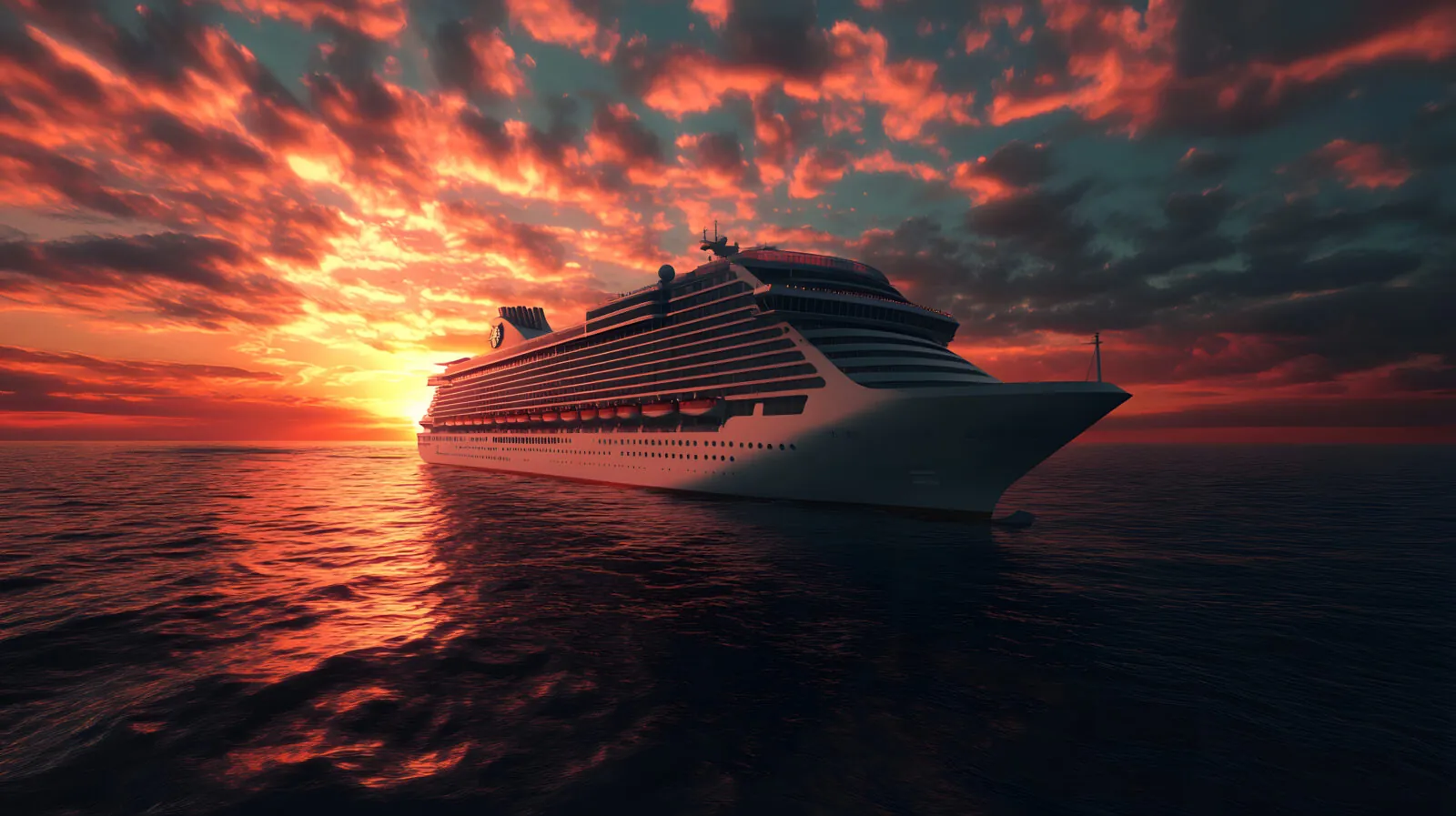How to File a Claim After a Sexual Assault on a Cruise Ship
Sexual assault is a deeply traumatic experience, and when it occurs aboard a cruise ship, the unique challenges posed by the setting can make seeking justice and support even more daunting. Cruise ships operate in a legal gray area governed by maritime law, creating complexities in reporting crimes, holding perpetrators accountable, and obtaining compensation.

This guide aims to empower victims by providing clear, actionable steps to report incidents, understand their rights, and pursue justice under maritime law. Additionally, we’ll explore victim support resources, legal options, and how to hold cruise lines accountable for failing to ensure passenger safety.
Understanding Sexual Assault on Cruise Ships
Sexual assault on cruise ships is a distressing reality, and the confined nature of these vessels often exacerbates the challenges victims face. Cruise ships function as floating cities, with passengers and crew from various countries. Incidents may occur in international waters, making the jurisdiction of such crimes ambiguous.
Unique Challenges at Sea
Unlike crimes on land, those occurring aboard cruise ships are subject to a mix of international, federal, and maritime laws. The following challenges often arise:
- Jurisdiction Issues: Crimes may fall under the laws of the ship’s flag state (the country where the ship is registered), the victim’s home country, or the location of the incident.
- Inadequate Security: Many cruise lines fail to provide sufficient security personnel, making it difficult to prevent or respond to assaults effectively.
- Delayed Medical Care: Access to adequate medical care may be limited while at sea.
Understanding these complexities is critical for victims who seek justice and accountability.
Steps to Report Sexual Assault on a Cruise Ship
If you’ve experienced sexual assault aboard a cruise ship, taking swift action is essential. While the situation may feel overwhelming, these steps can help you protect your rights and build a strong foundation for justice.
1. Notify Onboard Authorities
Contact the ship’s security personnel immediately. Cruise lines are required to document and report crimes to relevant authorities, though their processes can vary. Ask for a copy of any incident report you file.
2. Preserve Evidence
Refrain from bathing, washing your clothes, or cleaning the area where the assault occurred. Evidence such as DNA, clothing, and injuries can be critical to your case.
3. Seek Medical Attention
Request an examination from the ship’s medical staff. If the assault occurred near a port, disembark and visit a local hospital for more comprehensive care. Be sure to document any medical procedures and collect records.
4. Contact External Authorities
Depending on the ship’s location, you may need to contact the FBI (if the ship is in U.S. waters) or local port authorities. Victims can also reach out to maritime lawyers for immediate guidance.
5. Document Everything
Keep records of all communications, including:
- Medical evaluations.
- Statements from witnesses.
- Correspondence with cruise staff and law enforcement.
By following these steps, you can ensure that your rights are protected and that your case is properly documented.
Legal Framework: Maritime Law and Cruise Line Liability
When sexual assault occurs at sea, legal jurisdiction becomes a significant factor in determining how the case will proceed. Understanding maritime law and cruise line liability is essential to navigating these legal waters.
What is Maritime Law?
Maritime law, or admiralty law, governs legal issues that occur on international waters. It applies to incidents involving cruise ships, including passenger injuries, crimes, and contractual disputes. The ship’s flag state often determines the primary legal framework, but other jurisdictions may also apply depending on where the incident occurred.
Cruise Line Responsibility
Cruise lines are obligated to provide a safe environment for passengers. They may be held liable for:
- Negligent Hiring Practices: Failing to screen employees properly.
- Inadequate Security: Insufficient measures to protect passengers from harm.
- Failure to Respond: Mishandling reports of crimes or failing to report them to authorities.
Understanding whether the cruise line’s actions or policies contributed to the assault is key to building a strong case for liability.
Filing a Sexual Assault Lawsuit Against a Cruise Line
Filing a lawsuit against a cruise line is one of the most effective ways to hold the company accountable and seek compensation for damages. However, the process can be complex, requiring a clear understanding of maritime law and legal proceedings.
Steps to File a Lawsuit
- Consult a Maritime Lawyer: Find an attorney with experience in cruise ship cases. They can assess your situation, gather evidence, and represent you in court.
- File Within the Statute of Limitations: Maritime cases often have a shorter time frame for filing claims, so acting quickly is crucial.
- Build a Case: Collect evidence such as incident reports, medical records, and witness testimonies. Establishing the cruise line’s negligence is key.
Compensation Victims Can Seek
Victims of sexual assault may be entitled to compensation for:
- Medical Expenses: Reimbursement for treatments and ongoing care.
- Emotional Damages: Financial recognition of the psychological impact of the assault.
- Lost Wages: Compensation for time missed at work due to the incident or recovery.
Compensation Claims for Cruise Ship Assault Victims
Pursuing a compensation claim can provide financial relief and a sense of justice for victims.
What Compensation Covers
Victims may receive reimbursement for:
- Medical care and therapy costs.
- Lost income due to time off work.
- Emotional damages, including pain and suffering.
Challenges to Expect
- Legal Complexity: Proving negligence under maritime law can be challenging.
- Powerful Defense Teams: Cruise lines often have robust legal resources to fight claims.
By partnering with an experienced maritime attorney, victims can navigate these challenges and improve their chances of success.
Common Problems Victims Face
Despite the resources and legal options available, victims of sexual assault on cruise ships often encounter several obstacles:
- Inconsistent Policies: Cruise lines may lack transparency in their protocols for handling crimes.
- Delayed Medical Care: The isolated nature of cruise ships often means medical care is delayed until the ship reaches a port.
- Jurisdictional Issues: Determining which laws apply can be confusing and time-consuming.
Recognizing these challenges can help victims prepare for the road ahead.
Frequently Asked Questions
What should I do immediately after an assault on a cruise ship?
If you’ve experienced sexual assault on a cruise ship, it’s essential to take immediate action. Notify the ship’s security or medical personnel as soon as possible. Preserve any physical evidence by avoiding activities like bathing, changing clothes, or cleaning the scene of the incident. Seek medical attention from the ship’s medical staff or, if available, from professionals at the nearest port.
Can I report the assault to authorities outside the cruise ship?
Yes, depending on the ship’s location, you can report the crime to local port authorities, the FBI (if the ship is in U.S. waters), or law enforcement in the jurisdiction where the ship is registered. It’s crucial to document your report and follow up with legal counsel to ensure that all proper procedures are followed.
What are my legal rights under maritime law as a victim of sexual assault?
Maritime law provides protections for passengers, and cruise lines have a duty of care to ensure your safety. If a cruise line fails to provide adequate security or mishandles a report of sexual assault, they may be held liable. Your rights also include the ability to file a lawsuit to seek compensation for damages.
How can I file a lawsuit against a cruise line for negligence?
Filing a lawsuit against a cruise line requires proving that their negligence directly contributed to the incident. This may involve demonstrating a lack of adequate security measures, failure to address previous complaints, or mishandling the reporting process. Working with a maritime lawyer ensures that your case is properly prepared and filed within the applicable statute of limitations.
What kind of compensation can I receive after a sexual assault on a cruise ship?
Victims may be entitled to compensation for medical expenses, therapy costs, emotional trauma, lost wages, and other damages. The amount of compensation depends on the specifics of your case, including the severity of the assault and the cruise line’s role in enabling or failing to prevent the incident.
Contact The Cruise Injury Law Firm Today
Sexual assault on a cruise ship is a profoundly distressing experience, but victims are not without options. By understanding your rights, reporting the incident promptly, and pursuing legal counsel, you can seek justice and hold cruise lines accountable.
If you or someone you know has experienced sexual assault on a cruise ship, don’t wait to take action. Contact The Cruise Injury Law Firm today to discuss your options and begin the journey toward justice and healing. You deserve to be heard, supported, and compensated for your suffering.






